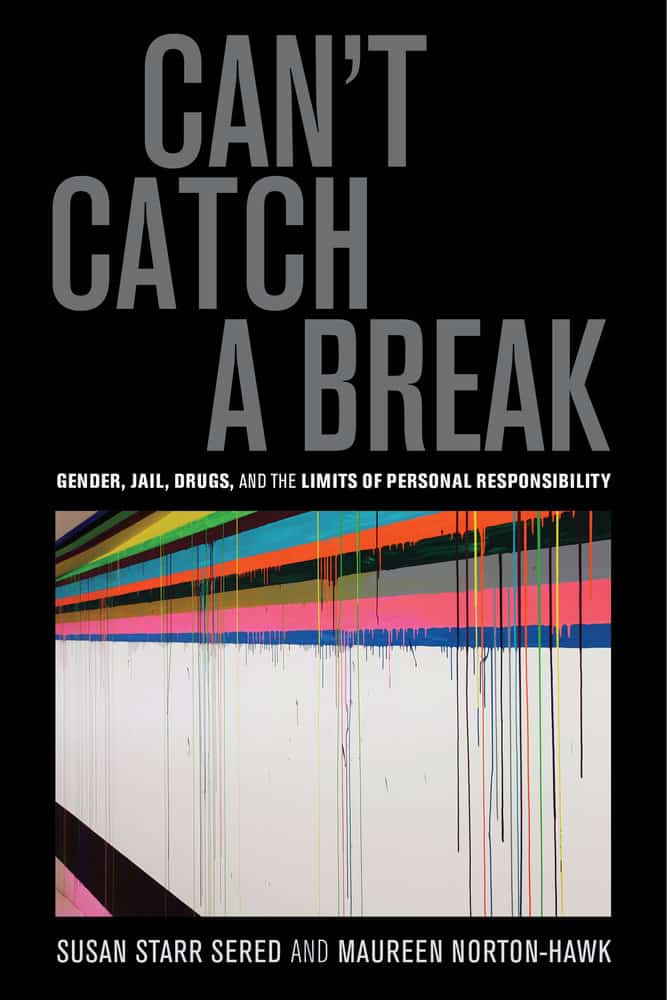By Susan Sered, author of Can’t Catch a Break: Gender, Jail, Drugs, and the Limits of Personal Responsibility
The following blog is reposted from the author’s ongoing blog about updates from the women of Can’t Catch a Break. These blog posts offer readers and instructors a teaching tool to use with the book. You can read more about this project here.
Laureen was not an easy-going person. From a young age she struggled with agoraphobia and other mental health challenges. As an adult she managed to work on and off, but mostly scraped by on the institutional circuit of shelters, treatment facilities, transitional housing, subsidized housing, TANF (welfare), Social Security Disability, food stamps, and job training programs of various sorts. And, like so many others living with similar challenges, she also cycled through jails and prisons on minor charges including probation violation and selling a controlled substance (marijuana was her drug of choice.)
Laureen had three children, all of whom she cared deeply about, but none of whom she was able to raise consistently throughout their younger years. She often spoke about her children, regretting that both she and the system failed them. To her great joy, later in life she and her daughter became quite close and Laureen embraced opportunities to babysit for her beloved granddaughter.
Laureen was extraordinarily smart, and I’ve often wondered what her life would have been like with parents, schools and mental health programs better able to address her needs. Or with a criminal-legal system less eager to lock people up. Or with secure, stable housing from which she would not be evicted for arguing with staff or fellow residents or for selling single cigarettes in order to have a bit of spending money. Or with appropriate supports for maintaining relationships with her children. Or with workplaces suitable for people with intermittent disabilities.
Though completing only the 9th grade, she went on to get her GED. Though not always able to successfully navigate the institutional circuit (which, as we know, is not set up to be user-friendly), Laureen knew how to advocate for herself. She understood how the system works and was extraordinarily skilled at staying on top of the myriad rules, regulations, forms, requirements, renewals and requests that one needs to survive on the circuit.
Throughout the nearly thirteen years we (my colleague Maureen Norton-Hawk) knew her, Laureen maintained deep interests in politics and in religion. She was vehemently pro-Obama and anti-Trump. Early in the pandemic she told me, “If it wasn’t for Trump we wouldn’t be in this mess. He ignored the early reports. And he threw away Obama’s response plan because Obama is black and Trump plays to his racist supporters.”
Laureen was also vehemently pro-Catholic and anti-Protestant, believing that Protestant churches are “man-made” while the Catholic church is the true church of God. Still, in her characteristic manner, when we talked about churches closing due to the pandemic she explained, “I’m fine not going. When I go [to church] I correct the priest every time. That is part of my job for God.”
Laureen could become very angry and agitated, but she also could laugh at herself and at the world. She loved (bad) jokes, puzzles, word games and riddles. One of her very last Facebook posts went like this: “After a long time, I told my hot coworker how I felt. She felt the same way. So I turned on the air conditioner.”
Laureen passed away at the age of 61. According to her daughter, she kept her sense of humor to the end.
Epilogue: I searched the internet for the appropriate Catholic prayer for a deceased friend. I found this one, that seems appropriate: “May you see your Redeemer face to face, and enjoy the vision of God, forever.” I guess I’d just want to add my personal wish that Laureen also will enjoy years – eternities – of debating politics and religion and exchanging jokes and riddles with her God.

